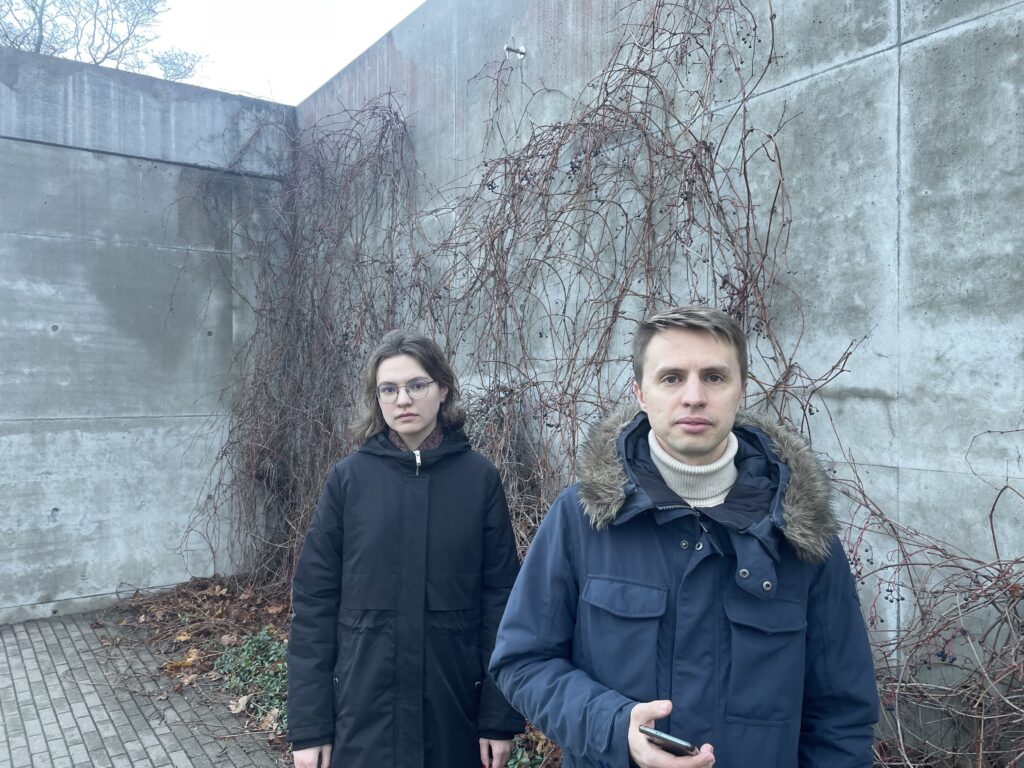Estonian World sat down with Maria and Ivan, two young and liberal Russian professionals, who came to Estonia before Russia’s unprovoked war against Ukraine and oppose their country’s actions – but were still denied their residence permits because of their nationality; in a candid interview, we discussed the opposition in Russia to the war and why the totalitarian system leaves a little room for a collective responsibility.
Recently, the Estonian government introduced several restrictions for Russian citizens to enter and stay in Estonia, which stirred a public discussion about whether the measure was fair. Some argue that all Russian citizens must be held accountable for the Russian terrorist state’s actions. Others believe Estonia should show empathy toward Russian people who try to escape Putin’s totalitarian regime and forced mobilisation.
Maria, a student at Tallinn University, completed a bachelor’s programme here in social sciences and has already begun her studies in the master’s programme. She has passed the B1 Estonian exam: she can speak and write in Estonian. She also has an Estonian boyfriend and is well-integrated into the local life and culture.
Ivan is a software engineer. He has visited Estonia many times for work before finally deciding to relocate to Tallinn. Ivan has always opposed Putin’s regime as an active member of civil society and a supporter of the Russian opposition figure, Alexei Navalny.
Guys, how do you feel right now? Ivan, especially you, considering the recent mobilisation call in Russia. You served in the army, right?
Ivan: No, I did not. But I did undergo some training for the engineering corps.
So, if they strongly desired, the Russian authorities could mobilise you?
Ivan: Russian authorities can mobilise me even without a strong desire (laughs). But honestly, I do not think I would get immediately mobilised. They would probably first mobilise people who did military service, those from provincial regions, so it would cause less trouble and public disapproval.
But overall, I feel terrible. (Pause.) I may start crying at any moment. Seriously.
Maria: Well, what can I say. (A sad laugh.) It’s difficult. On the one hand, there is hope for me because I am so young. I can move somewhere else safer, even outside of Europe, to Asia. (Sighs.) But still, it is all complicated.
You both have been denied Estonian residence permits. Aside from that, would you like to stay here long-term?
Maria: Of course, I have been here for three years. I graduated with a bachelor’s in liberal arts and now study international relations in a master’s programme. That’s ironic, right? (Laughs.)
Ivan: Initially, I had an opportunity to move to Helsinki or Tallinn. Poland, in theory, too. However, I have already been to Tallinn and Helsinki many times, and I liked Tallinn much more. The city is very cosy. St Petersburg is nearby, and I love St Petersburg. So, I have chosen Tallinn as my relocation destination.
I enjoy the local infrastructure that you can get everywhere by bicycle and appreciate the level of digitalisation in everyday life in Estonia. I also liked that you have many startups and the constant movement toward new technology. For me, as an engineer, it is important.
And, of course, the public transport here: you can get to any destination by bus almost as fast as by taxi. All of it is super cool to me.
I have even dug into the local context, the government institutions here in Tallinn, and local community activities.
And what is mainly upsetting personally for me is that I have done quite a lot to fight Putin’s regime. For example, I placed myself in hazardous situations during the protests, participated in the local elections and supported the opposition.
Suppose someone asks me where you were in 2014 during the annexation of Crimea. I can honestly answer that I went to protests organised by Boris Nemtsov (the late Russian liberal politician, who was assassinated in 2015) and other opposition forces.
I supported Alexei Navalny (a Russian opposition leader, lawyer and anti-corruption activist) and Petersburg’s Surveillants, a very cool opposition organisation.
During the last elections in 2021, the local elections and parliamentary elections in Russia, I spent around seven days at the polling stations, deprived of sleep and rest. As a result, I can guarantee that no cheating occurred at our polling station.
I gathered all the evidence that supported my claims. However, I still got the response from the police via the relocation specialist that my only option for staying in Estonia was to apply for political asylum. It’s so weird, though.
I work for a German company. I spend German money here in Estonia, pay taxes and want to contribute to the development of this country. And I am the one who has to apply for political asylum.
The chance of me receiving asylum is small as I do not have direct confirmation on paper that there is a threat to my life and freedom in Russia. This is absurd.
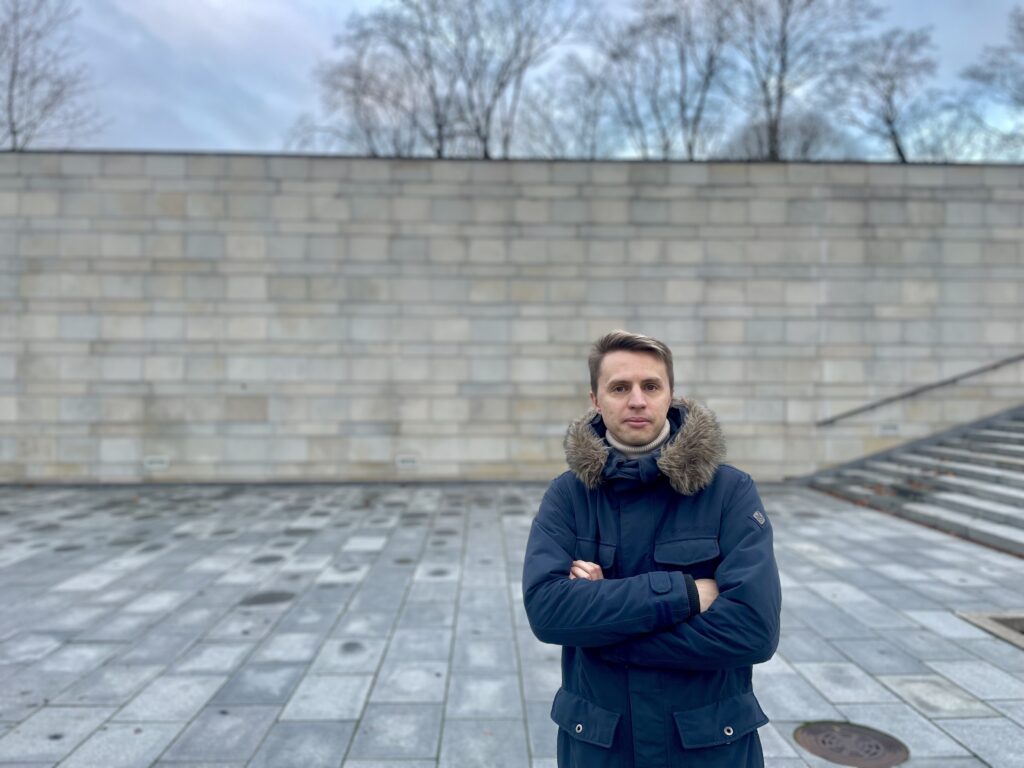
Did you sometimes have a feeling that you did not want to mention that you were from Russia?
Ivan: When Crimea was annexed by the Russian military in 2014, I had just graduated from the university and started working for an Estonian international company. I was working from my hometown St Petersburg and, from time to time, went to Tallinn to visit our manufacturer.
I remember once mentioning this to my grandma. She warned me, “Oh my God, you are going to Estonia! Everyone hates Russians there.” I felt no hate personally and had zero problems because of my nationality in Estonia at that point.
When I finally moved to Estonia in January this year, since the beginning of the Russian war in Ukraine, I did feel the difference but not in personal relationships. On the contrary, my Estonian colleagues, my apartment landlord, and even my dates (laughs) – everyone treated me well as a Russian person.
However, since the beginning of the war, something has changed. For instance, sometimes, when I turned to someone in public places like shops, I felt like the person I was talking to knew Russian but was reluctant to speak it with me and preferred English instead.
Maria: When I came to Estonia, I shared an apartment with a girl from the Moscow region, Liza. We also had a friend in common, Stas. We used to hang out a lot and go places because it was our first semester at the university.
At one point, we started to feel ashamed of speaking Russian in public and saying to Estonians that we were from Russia also felt uncomfortable. We all felt pressure because of the Soviet legacy here. In addition, we often felt embarrassed because of how some local Russian speakers behave here.
For example, the tank monument in Narva and its presence on the territory of modern-day Estonia surprised me negatively even before its elimination campaign. But, of course, I had nothing to do with it. My great-grandparents fought in the Second World War, but otherwise, I have no relation to it whatsoever. Nevertheless, I often catch myself feeling guilty in front of Estonians.
Ivan: Guilty?
Maria: Yes, I mean, I do realise that you and I are good people but anyway. This feeling was one of the reasons I have learned Estonian so fast – in one and a half years, to be precise. I actually liked the Estonian language a lot, too.
Did you have any conflicts with Ukrainians here?
Maria: I work in a beauty salon. Since the beginning of the war, we have had quite a few Ukrainian girls working there. They have a great school of manicure in Ukraine (laughs). So, I have several Ukrainian colleagues, and I have never had any problems.
It goes without saying that when we met, I immediately informed them about my position, that yes, I am from Russia. Still, I oppose the war and hate Putin and his circle. The whole situation is total bullshit, and I am incredibly sorry for my country’s actions.
Wait. There was once an uncomfortable situation at work. We have a long table in the salon where we work with several clients. One day, I was doing a manicure for a client when my Ukrainian colleague next to me also had a client, a Ukrainian woman. This woman said she wished that all Russian kids died horrible deaths. It was hard to listen to. I thought that maybe some tragedy happened to her or her loved ones, but still, I couldn’t help but feel weird and uncomfortable throughout their conversation.
Ivan: Yeah, in these situations, we would love to intervene, saying that we are not all like Putin and his admirers. It’s a natural defence mechanism.
Luckily, I was never present during such conversations. I have also had fewer Ukrainian friends here in Estonia. Most of them relocated here before the war.
I also have a couple of friends who came to Estonia as refugees. They all are very sensible people. I personally have never heard anything negative about me or Russians from them.
Do you think the Russian people are good?
(Silence.)
Ivan: It’s difficult for me to judge as I come from a family with opposing views on what happened and happening in Russia. My upbringing was highly pro-European and liberal. No one in my family has ever liked Putin… One grandma kind of supported him but not me or my parents.
At one point, I even had my rebellious phase when my parents kept telling me to leave the country. “There is nothing here for you in Russia,” they said. But I was like, “No way, my generation will fix everything. We will stand up to Putin, and future Russia will be ours.” And this is how it all went. (Laughs sadly.)
Do you have any explanation, Ivan, for why your family was like this? Any socioeconomic factors here? Education?
Ivan: Honestly, no idea. It just happened this way. Historically.
And Maria?
Maria: My parents are also very liberal and I had never been abroad until I came to study in Estonia!
From a very young age, my father kept telling me to get out of Russia. He also predicted that, for some reason, I would end up marrying a Finnish guy. (Laughs.)
About the Russian people… Honestly, I feel very tormented on this subject – especially since February. On the one hand, I do understand Russian people. I grew up around them. When I came here to Estonia, I had to re-evaluate quite a few things in my life. For example, before, I did not feel like Russia’s actions in Crimea were that bad. I did understand that taking over Crimea was wrong, but I felt no real emotion about the whole situation. I was 12 when it all happened, so I was like, “Hm… Crimea… okay… Crimea… whatever.”
After taking a couple of political science courses here at an Estonian university, I finally understood why Crimea was such a big issue for Europe. The events in Crimea were an international tragedy. This is what I have realised here.
I look back and think, “Why in the world did I not use my own head and arrive at the same conclusion in 2014?” But then I remembered that I was just a teenager who didn’t care about politics, and the Russian TV was screaming “Сrimea is ours” from every corner.
So, coming back to Russians. I hate people taking advantage of the war situation and manipulating the masses. At the same time, I feel very sorry for young Russians, among whom just around three per cent support Putin. We will have to deal with the consequences of the terrible mess that Putin’s regime has created.
As for the majority of Russia’s population – I realise that propaganda is powerful, and it sucks. However, I believe that the people of Russia must open their eyes to what is happening, even if the truth hurts badly. There is no other way around it.
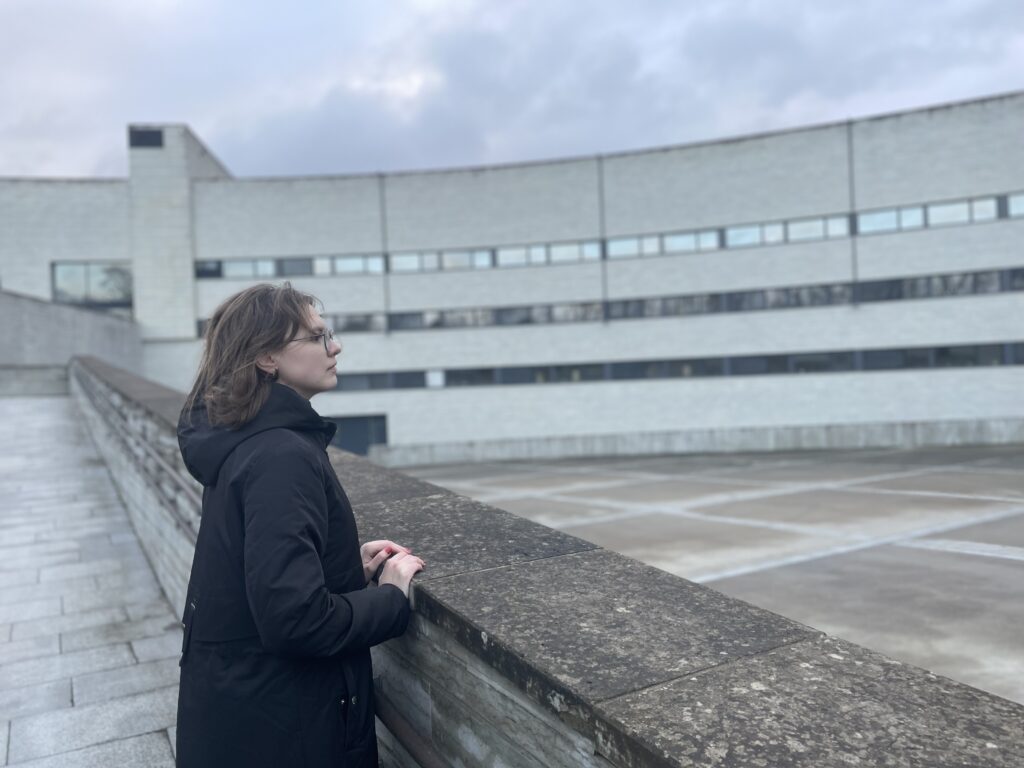
Masha (a variation of Maria’s name), do you see a connection between Russians who believe Putin’s propaganda and their socioeconomic status?
Maria: Yes and no. For instance, many Russians will never understand the impact of the infamous Western sanctions because they have never been abroad or watched Netflix. Just look, around 70 per cent of Russians do not have a passport and cannot afford a visa. So, to them, the sanctions problem is just ridiculous.
Ivan: I do not think so. I don’t believe that only poor people love Putin and proudly paint “Z” symbols on their cars. I once read Brodsky’s (Joseph Brodsky, a famous Russian poet) poem “On the Ukrainian Independence”. Brodsky did not see Ukraine as a separate state or nation.
I also had very educated friends back in St Petersburg. They were proponents of the idea that there is no such thing as Ukrainian nationhood, that it is an artificially constructed concept. So, unfortunately, it isn’t just Dugin (Aleksandr Dugin, a Russian political philosopher) who thinks there is Poland and Russia but not Ukraine.
I understand where this way of thought is rooted – obviously, it has something to do with Soviet heritage and the historical perception of self as a great empire.
So, overall, more educated and financially secure or less educated and poor – they all have their reasons to believe what they believe about Ukraine. It’s wrong, of course, but the problem is definitely not just in money or level of education but in larger historical and cultural discourse.
Is it fair that Estonia denied you the residence permit?
Ivan: I feel mistreated by the Estonian state.
As I mentioned, I grew up in a liberal household, always looking up to Europe and its values. So, when Estonia turned its back on me, it crushed and demoralised me. I feel like I don’t want to be part of this Europe anymore.
Right now, I wish I could just fly to Mars. The so-called “Russian World” has nothing to offer me with its sick admiration for Stalin (Joseph Stalin, the Soviet dictator from 1922-1953) and obsession with conservative values.
Europe neglected me, even though I have always believed that Europe is about individuals and their freedoms. Human rights are literally written into the EU’s constitution. But well.
Maria: I think Estonia’s reaction and all the restrictions towards Russian citizens have very much to do with Soviet history. The same goes for Latvia and Lithuania or Poland. So, I understand Estonia’s motives in a way. But I also believe it is not my or Ivan’s fault that Putin’s Russia launched a war in Ukraine and now terrorises the whole region.
What do you think about collective responsibility?
Maria: There is a collective responsibility. You cannot really escape it. However, it is also important to remember that many in the Western world believed we had a hybrid regime in Russia. It was implied that we had some element of democracy in our system. However, we can all clearly see now that it has been authoritarianism, if not totalitarianism, in Russia all the way.
Therefore, it is pointless going to the streets for protests in today’s Russia. Nothing will change. Navalny tried and was almost killed, and now he is in jail. Navalny’s protest rallies were massive, but they did not change anything. Even now, people are protesting the war across Russia, but it just does not work with the present Russian regime.
Ivan: I agree, and I am surprised Europe does not get it. Or they do get it, but…
Maria: Oh yes, I study at the university with other international students, some of whom are from Europe, like Lithuania or Latvia. So, they tend to ask why Russians are not protesting, why they don’t put up a fight… But, honestly, sometimes I just want to hand them the tickets to Moscow. “If you want to help stop the war, here are the tickets. Let’s go and protest on the Red Square and be captured by the Russian police in a minute.”
In the case of Russian citizens, the police will not just capture you, they will send you to jail for a long time, and if you are a guy, you will be just transported by Russian troops to Ukraine.
So, you can go and protest, take huge risks, might get caught, and it will change absolutely nothing. So many young opposition members are now rotting in Russian jails with long prison terms.
Ivan: Lately, a young man in Russia got a 20-year prison term just because he had transferred money to Navalny, like 1,000 rubles a month… By the way, I also transferred money to Navalny, so I guess I could be sent to jail for this, too.
Maria: Sometimes I feel like Europeans are the “summer children” who just cannot imagine how it feels to live in a country, where you literally have no rights.
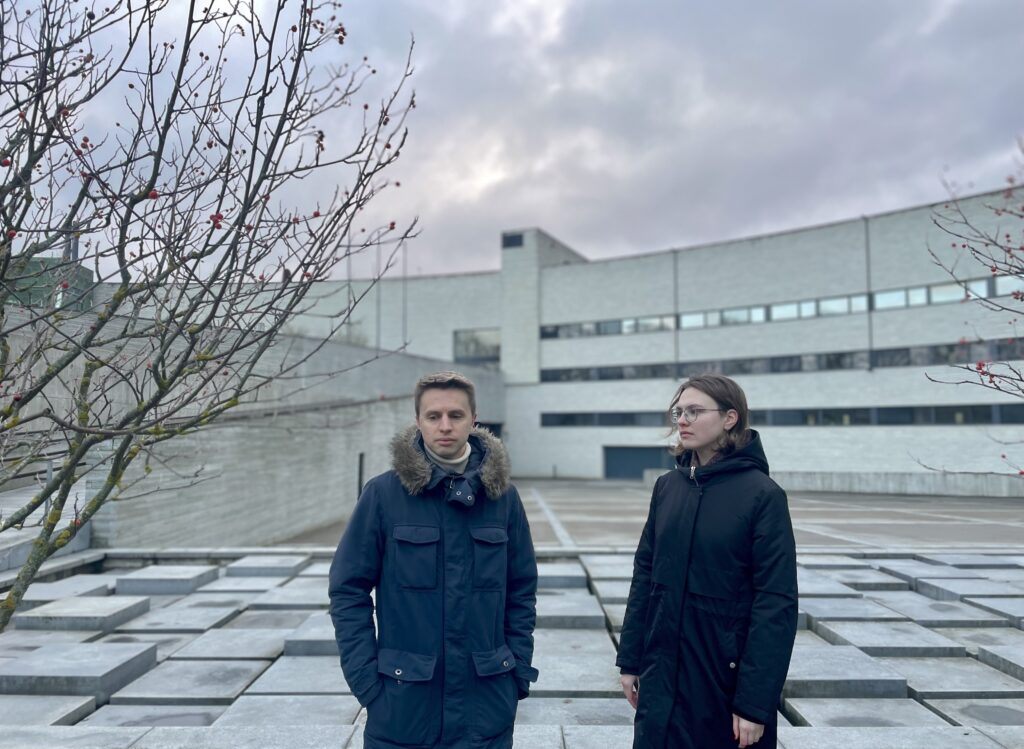
But don’t you think that a massive uprisal of Russian people could swipe away Putin and his servants?
Ivan: I don’t think it is possible.
Maria: People are just too scared and have legitimate reasons to fear.
Ivan: Russians are heavily brainwashed too. The economic situation has also been degrading for years.
But what does it take for a Russian person to act against the oppressive regime? Like when all people, young and old…
Maria: Oh, definitely not old. Old people are completely in love with Putin – not all of them but many. Like in my family, I have two grandmas, one is 80-plus, and the other is 70-plus. The older one absolutely despises Putin. But the younger one is pro-Putin even though she said herself that there are only lies on Russian TV.
Once I asked her, “If you know they lie to you, why are you still watching them?” You know what she answered? “Just because.” (Laughs sadly.) She also brought up “stability” and her “regular pension payments” as an argument. Well, to be fair, these payments are so small that it is almost impossible to live on this money.
Ivan: Oh, all this pension payments’ talk is so childish to me. Russia’s problem is so much more nuanced than that.
I talk to colleagues from Finland, Belgium and Germany at work. It does not stop to amaze me how little Europeans understand the Russian context. I kind of suspect that European politicians are not much more advanced in their take on Russia. One of the reasons why so many European countries did not expect Putin to follow up on his war threats is because they lack knowledge and understanding of modern Russia.
The reasons go back to all these “skrepy” or spiritual bonds’ narratives. When I lived in Yekaterinburg in 2018-2019, I used to go skating in the backyard of my apartment building. Meanwhile, I listened to the conversations of the locals. One recalled his experience traveling to Japan or the US, and he had very nice things to say about these trips. The trips were such extraordinary experiences for him, and the technologies these countries possess – just wow. Then I asked him, how do you feel about Russia in comparison? He said that God gave Russians a certain level, and it’s ungodly to try to go beyond it. (Everyone laughs in shock.)
So, as you can see, a part of the Russian society is very religious. The Russian Orthodox church backs up Putin’s regime. The size of the public sector and the number of people working for the government are, therefore, dependent on Putin’s regime – all of it plays a significant role in the regime’s survival. In addition, the propaganda machine has been working non-stop since Putin came to power. So, I dare say that the Russian people genuinely support the war or the so-called “special operation”.
Maria: The dehumanisation of the war opponent takes place for sure. I am tired of hearing that “the Russian troops are killing only Nazis or the Ukrainians are bombing and killing themselves”.
What impression did you get from the local Russian-speaking Estonians?
Maria: I have a local Russian-speaking friend. He moved from Jõhvi to Tallinn, where he works in the IT sector. He is totally Estonian or European in his views and values. He is 24 years old.
I have also had a course mate. We took an Estonian course together at the university. When the war began, and everyone in the class was in deep shock and despair, the teacher suggested discussing the situation together. He was the only one who said, “It isn’t that simple.” A clear red flag. (Laughs.) This course mate is also very young. His take on the war was probably affected by his family.
Ivan: There are obviously some locals in Estonia who are not supporting Ukraine. I have a Ukrainian flag on my car, a paper flag I got during anti-war demonstrations in February. At one point, things got weird. People started randomly taking pictures of my car. I did not quite grasp whether it was a sign of approval or not.
Once, someone even called the police on me.
So, this policeman came to my car and asked, “Excuse me, do you have a flag here?” I answered, “Yes, I do. Is the Ukrainian flag forbidden here?” (Laughs.) He said, “No, the Ukrainian flag is not… But, you know, someone called us and reported that you have a Russian car with a flag here.” It was such a bizarre experience. (Laughs.) Who called the police and why? I still cannot wrap my head around it.
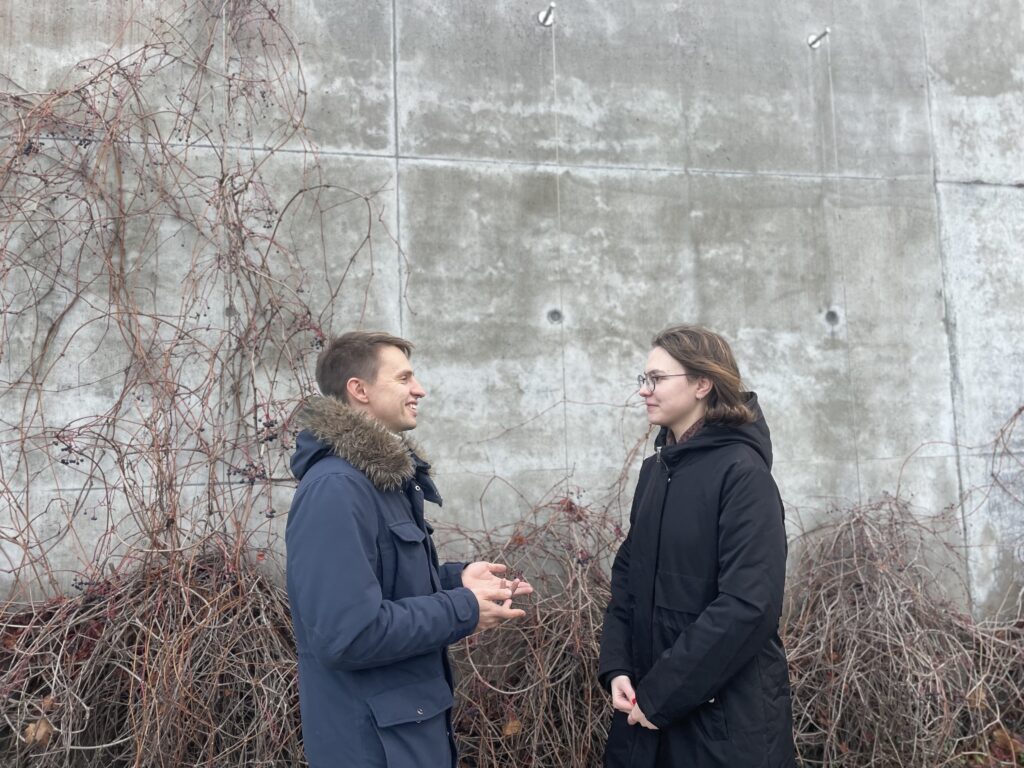
Do you see a difference between people from Russia and the local Russian speakers?
Ivan: The local Russian speakers curse much more. (Laughs.) Now, I have figured out that some non-normative expressions are considered less rude here than in Russia.
Maria: I did not see much in common with the local Russian speakers. They generally give off this Moscow or St Petersburg vibe – like this big city kids’ vibe. But the Russian countryside is different. And I am from Ural, so… Not that we don’t have big cities in my home region, but the Russian provincial intelligentsia is just different.
In what way?
Ivan: Less bohemian, I guess. I am originally from Chelyabinsk. I confirm that we have our own intelligentsia, but this is, again, just different.
Maria: Like it is not someone better or worse, just different.
Ivan: Maybe simpler too. Like, take Yevgeny Roisman (a Russian opposition politician) and Navalny…
Do you have a plan B?
Maria: Well, I am not the most important person in Russia, so I do not think they will take me to jail. I will have to start building a new life there. I do not want to return to Russia, especially now. But I am still trying to sort out a solution, maybe go to the university in some other European country with a less strict policy towards Russia. One step at a time, you know.
I do not think Estonia will get any easier on Russians, even for students. The refugee status isn’t exactly what I am looking forward to. I do not have enough options to receive one anyway. Also, I don’t know what effect it will have on my family back in Russia. I would not want to place them in danger of any sort. And, of course, it would mean I would not be allowed to travel back home to see my parents.
Ivan: As an IT specialist, I can confirm that there is hardly anything that will make me return to Russia while Putin is still in power. The same goes for many of my friends in the IT field.
If I get kicked out of all the European countries, I will move to Egypt, Dubai, Georgia or wherever. I am not going back to Russia.

